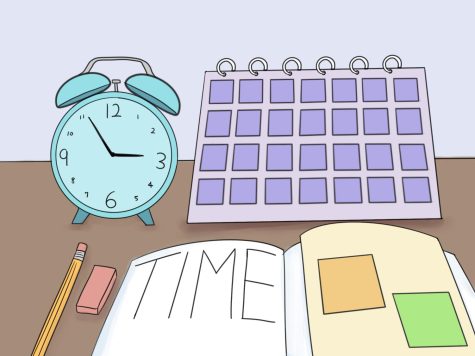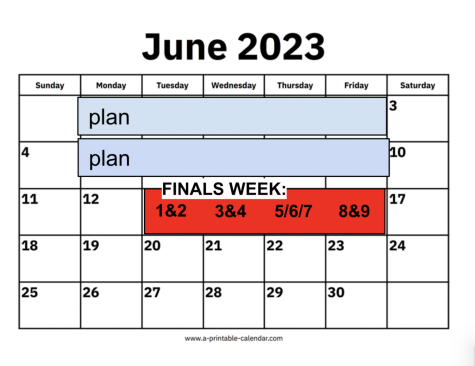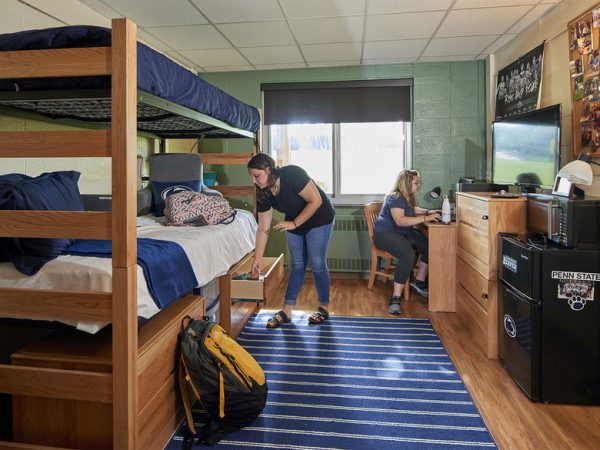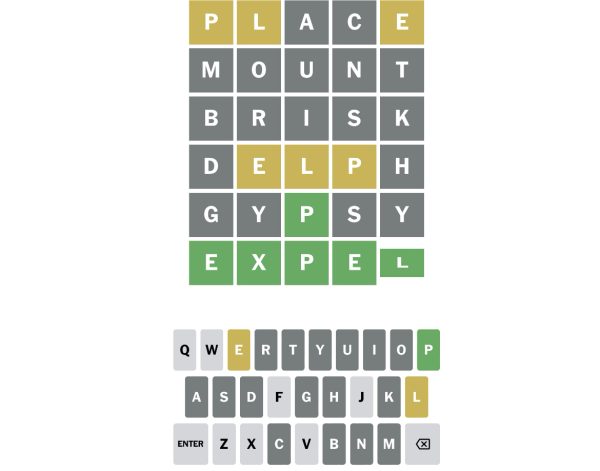School Survival Guide #2: Finals
Cresskill High School is officially having finals this year, for the first time since the 2018-2019 school year. With this being the first set of finals for all current high schoolers, here are some tips on how to not fail – xoxo, your favorite trio.
To start off, here are some general things you can do:
Approach your teachers for help:
We recommend that the first thing you do is get a little bit of an understanding of what your finals will look like so you know how to study. To do this, you may ask your teachers for pointers. Ask for the general format of their finals: is it an essay, multiple choice, etc. Ask teachers if there is anything they can help you with, such as giving you blank copies of the years’ previous tests or quizzes to work on or use as practice, or any other materials like homework packets or study guides. You might also ask them for some of their time, like in extra help sessions to specifically prepare for finals. Even if your teachers can only give you limited help,, it does not hurt to ask; they may even appreciate your dedication.
Make study buddies:
From study groups, a study group can help keep its members accountable. Notes can be shared, and a deeper and possibly more comprehensive understanding of the material can be reached.
Manage your time:
The first step to managing your time is eliminating distractions. Form useful habits for an efficient studying routine and create an organized environment to eliminate any time wasted on looking for things. For further and more in depth tips on time management and study buddies check out our last school guide on time management. 
To set yourself up for the best outcome possible it is crucial you start planning early. Begin with having a general plan of organizing, prioritizing, and studying.
Here is a general plan for individuals who may be starting the week after spring break (almost a month and a half before finals):
April
The week after spring break (9-15): The first half or so, depending on the individual, can be used to organize your workspace and studying materials. Then, begin by gathering your tests, quizzes, and any study guides, flashcards, or homework assignments and organizing them in chronological order from the very beginning of the year until the current time. Depending on your workload, set a chunk of time aside to do this over the weekend.
(16-22): Go through the previously organized material for one-half of your classes. Clearly mark major points from each unit, distinguish the material you are confident in, the material on which you need to work, and the material you struggled with the most. You can use any system to differentiate between the different categories: colored highlighters, post-it notes, etc. If necessary, as you sort through your material, create flashcards, notes, or study guides, or any other studying format of your choice based on the material, existing documents/flashcards, preferred study method, and judgment on the level of organization you want to have for your studying.
(23-30): Repeat what you did the previous week: prioritizing, marking, and rewriting, this time for the second half of your classes.
At this point, you will have already gained a much better understanding of the amount of material you have to study. The areas of comfort and areas where you may need to put more effort are now refreshed in your mind and hopefully you now have an idea of how you would like to proceed for the next month.
May
(30-6): Something crucial when studying for finals, is making sure that your workspace is organized. Organize your space if need be. Then, create a study schedule for the next week. Start with scheduling a single week to observe your pace, realistic free study time, comfort, and any other necessary factors for the best-individualized schedule).
A good schedule should include every part of your day – waking up time, going to school, (lunch studying/study halls if you wish), meals, ongoing classes, homework/studying, prescheduled extracurricular activities, etc. Take into account your general studying tendencies, which subjects normally take you longer to study for, which ones take less time, and based on that, set different time aside for each subject. It is also important to think about balance and breaks:make sure your study schedule allows that. Once you have a set schedule , set a strong system for keeping your study materials organized for the next weeks leading up to your finals, since there is still incoming material from classes, make sure your system is adjustable.
This is a mock study schedule for a hypothetical student athlete’s week you may use as a visual guide:

(7-13): Follow the schedule you created last week, making sure to abide by the organizational system you set up for yourself. Once the whole week is through, refresh your workspace if needed. Make a schedule for the following week, and look back on what you accomplished. Reflect on the things that were advantageous, and things that you struggled with so that you can make changes for the upcoming weeks. Make sure you continue to analyze your studying pace, level of comfort with certain materials, etc.
Repeat (7-13) weeks for the rest of May: studying, scheduling, making adjustments, and prioritizing.
June (Finals month)
(28-3) and (4-10): At this point, you should have a good understanding of your material. These next weeks should be about mastering everything and keeping the material fresh in your mind. Continue to study and prioritize healthy habits to be in the best physical and mental state for your upcoming finals. Some time during these two weeks makes a schedule for finals week. Make sure it is realistic but effective, and schedule finals week as specifically as possible.
FINALS WEEK (11-17): You made it! Study and prioritize next-day finals while still keeping your mastery with the rest of the weeks’ finals, (if you began studying early you should be able to do this without too much stress). Make sure to sleep enough, eat, and take the necessary actions to have your brain and body properly stimulated.
CONGRATULATIONS! You made it through finals week and the school year! Look back on the school work and accomplishments you had this year. Time to relax and look forward to summer. Make sure to take some time for yourself!
All in all, our biggest tips for you would be to start early, ask for help, work with others, form healthy and productive habits, and emphasize organization.
Below is a calendar of the plan mentioned above. This will hopefully allow you to visualize and understand it better!



Your donation will support the student journalists of Cresskill High School. Your contribution will allow us to purchase equipment and cover our annual website hosting costs.
















